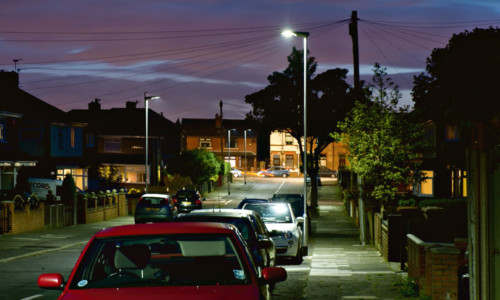
Thousands of street lights are being dimmed or switched off to save money sparking fears of more accidents on darkened roads.
A survey by The Sunday Post has revealed that at least 137,000 lights in 16 local authorities in the north of England are either being switched off or turned to lower brightness late at night or in the early hours.
Councils have been encouraged by the government to dim lights to save money and cut carbon emissions.
But critics fear there will be more fatal accidents as huge parts of the country are plunged into darkness.
Last night, Simon Williams of the RAC said: “Good street lighting is a significant factor in helping to ensure the safety of motorists, cyclists and pedestrians.
“The suggestion that street lights might be dimmed or switched off in an effort for councils to save money will be an alarming thought for many road users.
“The main concern would be the dangers for both pedestrians and cyclists created by pockets of darkness in residential areas.”
Our survey reveals that many councils have already introduced light saving initiatives, while others were running pilot projects.
A total of 30,000 street lights in North Yorkshire will be switched off “where appropriate” between 12am and 5am. The move is expected to save £400,000 by 2016. In Blackpool, 6,881 street lights are already dimmed from dusk until dawn.
A spokesman said this was likely to be increased to all areas apart from crime hot spots and some major routes.
Gateshead council is replacing two thirds of its entire lighting stock with energy efficient bulbs, allowing them to be dimmed or switched off. At present, 8,500 are turned down between 8pm and 7am.
Durham County Council is currently dimming its 81,981 lights between 10pm and 5am.
Half of Lancashire County Council’s street lights are turned down between 10pm and 6.30am, including some on traffic routes.
A spokesman said some lights on the M56 motorway, which are operated by the Highways Agency, are cut completely for five hours from 12am.
Cumbria County Council’s “invest to save” scheme will involve 17,000 street lights which could be dimmed or switched off in the future.
A spokesman said this would only happen “where there is no detrimental effect to road safety.”
South Tyneside Council is running a “small scale” pilot scheme which, if extended, will see lights on minor routes turned down between midnight
and 6am. A similar trial is being held in North Tyneside council area with 1,200 dimmed and 46 switched off during the early hours.
In Copeland council area in Cumbria, which manages lights on footpaths, new lights will only be funded by third parties such as such as parish councils or housing associations.
Worn out street lights will not be replaced unless somebody else pays for them because of budget cuts, the council said.
The Sunday Post obtained details of each council’s current and proposed schemes through Freedom of Information laws.
Of those surveyed, only Newcastle, Sunderland and Redcar and Cleveland councils said they had no plans to cut street lighting. Middlesborough council did not respond to our requests.
Kevin Clinton, head of road safety at The Royal Society for the Prevention of Accidents (RoSPA), warned low lighting makes serious accidents more likely at night.
He said: “Driving at night is more dangerous and pedestrians and vulnerable road users in particular face a higher risk in the dark.
“As well as it being harder for drivers to see people walking in dark, there’s also more potential for walkers to trip and fall over kerb edges, uneven paving and unseen obstacles on paths.”

Enjoy the convenience of having The Sunday Post delivered as a digital ePaper straight to your smartphone, tablet or computer.
Subscribe for only £5.49 a month and enjoy all the benefits of the printed paper as a digital replica.
Subscribe